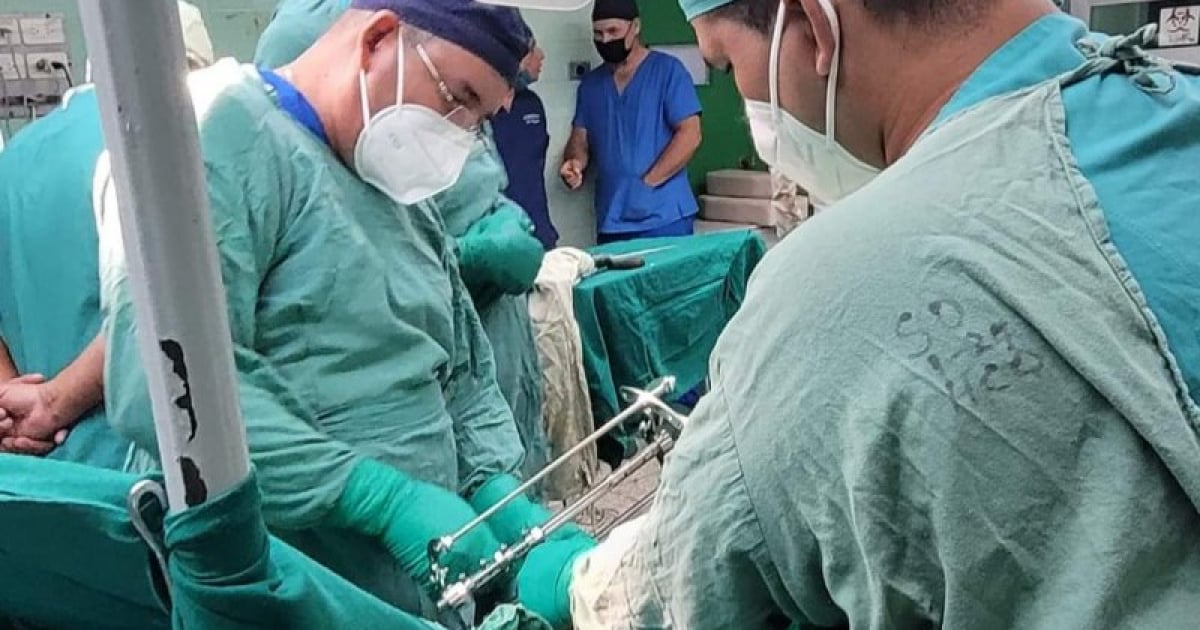
A doctor from Santiago de Cuba, exhausted from witnessing the deaths of patients due to the lack of medicines and supplies, and faced with the regime's inability to find effective solutions, compared the precariousness of the healthcare system—long presented as a hallmark of the government—to the death of the homeland.
"Our homeland has died, damn it, and there is nothing we can do about it," concluded a doctor from the eastern province in a series of reflections he shared with CiberCuba.
According to the doctor, most of his acquaintances maintain some kind of contact with people abroad and observe how the Cuban diaspora strives to achieve their dreams: well-paying jobs, the purchase of a car or a new home, or obtaining bank loans.
Meanwhile, those who remain on the island are faced with a reality where "existence has been reduced to a survival race that navigates the narrow margins of blackouts, lack of water, the search for cash, concern about what to eat, and the constant struggle with long lines, shortages, and inflation…".
"What is left for those of us stranded on this island without a way to escape? I don't believe that any ordinary Cuban, who represents the majority, is concerned today about buying a car, or where to go on vacation next year, or repairing or building a house, or any other plans that seem so natural for those living in another country," he said with deep frustration.
The doctor, whose salary as a specialist barely allows him to buy a few pounds of rice, yuca, plantains, and okra, admitted that “every now and then we treat ourselves to a couple of pounds of minced chicken or some chicken thighs.”
He added that he no longer even considers the possibility of enjoying "the precious coffee in the mornings, the longed-for sugar for sweets and soft drinks, and much less milk, cheese, or butter," products he described as "science fiction for most of the population for a long time."
"People live without dreams, without hopes, without a tomorrow to believe in. They have lost the desire for change, and are left only with the longing to escape, to emigrate, so that, as many feel, they may never return to Cuba," he concluded.
The Santiago doctor emphasized that, although he cannot travel like those who have family abroad, he at least wishes for the freedom to have a passport and not be treated like a criminal by the regime, despite his more than three decades of service.
The reality for Cuban doctors is that they endure strict regulations that are very difficult to navigate.
Doctors have few options: if they abandon a mission, they cannot return to the country for several years, which means giving up their family. This situation is particularly challenging for those with elderly relatives or young children.
As a result, many choose to apply for temporary exit permits, knowing that if they return, they will once again be subject to restrictions.
The safest option is to request a permanent exit permit from the country, for which one must "justify" the reason for the trip; however, the regime often delays responses to these requests and approves them only after years of struggles, which in many cases involve visits to "implore" senior officials at the Ministry of Health to grant the release.
All of this traces back to 2023, when the Cuban government decided to further restrict international travel for medical specialists, dentists, health technicians, and nursing graduates due to the massive exodus that the sector experienced in 2022.
The decision was announced by the Director of Human Capital at the Ministry of Public Health (MINSAP), Marcos del Risco del Río, during a videoconference in which he requested "discretion."
However, the MINSAP later clarified that "there is no immigration regulation for specialist doctors in General Comprehensive Medicine, nor for newly graduated doctors"; a stance that aligns with their desire to rent out as many specialists as possible to foreign countries.
Dentists and nurses also escape this strict control. However, reports from Cuban specialist doctors are frequent, as they go to the identity card offices to obtain their passports and are informed that they cannot do so because they are "regulated."
What do you think?
COMMENTFiled under: